What is Meter For Lcr Analysis
Meter for LCR analysis, also known as LCR meters, are precision test instruments used to measure the electrical properties of capacitors, inductors, and resistors (hence the name LCR). These devices are essential for engineers and technicians who need to ensure the quality and reliability of components in various electronic systems. The fundamental principle behind an LCR meter is to apply a known stimulus (usually an AC signal) to the component under test and then measure the response. By analyzing this response, the meter can determine the component's characteristics.
The operation of an LCR meter is based on the physics of electrical impedance. When an AC signal is applied to a inductor, the current through it lags behind the voltage, creating a phase shift. Similarly, when the same signal is applied to a capacitor, the current leads the voltage, again causing a phase shift. For resistors, there is no phase shift; they simply dissipate the applied AC signal. By measuring these phase shifts and the magnitudes of the currents or voltages, an LCR meter can compute the desired electrical properties of the component.
These meters come in various forms, from benchtop models used in laboratories to portable units that can be taken to the field. They are indispensable tools in a wide range of industries such as electronics, telecommunications, and precision engineering, where accurate measurement of component characteristics is critical for product performance and compliance with industry standards.
Types of Meter for LCR Analysis
Meter for LCR analysis come in a variety of types to accommodate different laboratory requirements and applications. Some common types include:
-
Benchtop Meters: These are compact devices suitable for desktop use in a laboratory setting or for on-site testing where portability is not crucial. They typically offer high precision and are ideal for applications where a high volume of detailed testing is required.
-
Handheld Meters: These are designed for convenience and portability, making them perfect for fieldwork or on-site troubleshooting. Handheld meters are user-friendly and often feature touchscreen interfaces for easy navigation.
-
Portable Meters: Even more compact than handheld models, portable meters are designed for on-the-go professionals who require rapid testing capabilities without compromising on accuracy.
-
Automatic Meters: These advanced instruments can perform measurements without continuous operator involvement. They are equipped with software that allows them to perform a sequence of tests automatically and with high repeatability.
-
PC-Based Meters: These meters are connected to a computer for data processing and advanced control features. They are useful in research settings where detailed data analysis is required.
How to choose Meter For Lcr Analysis
Selecting the right meter for your business needs careful consideration of several factors. The type of meter is paramount—whether it's for insulation testing, auto testing, or another application—as this will determine its operating parameters and accuracy. The required voltage range must align with your testing requirements; higher voltage models are suitable for testing high-resistance components like cables or PCBs.
It's also important to consider the impedance capabilities of the meter. A meter with a lower impedance can provide more accurate readings, particularly in the lower frequency ranges often associated with LCR measurements. Moreover, businesses should look at whether they need a handheld portable meter or a benchtop model that can handle more demanding applications.
Customization may be necessary for specific use cases. Suppliers on Alibaba.com can often provide ODM or OEM services to tailor a product to your exact specifications. This might include customized features or software reengineering to integrate the meter more effectively into your existing systems.
Lastly, take into account the after-sales support offered by suppliers. Whether it's through online technical support or video tutorials can be crucial in maximizing the utility of the purchased meter.
About Meter For Lcr Analysis on Alibaba.com
Alibaba.com stands out as a premier online marketplace where businesses can source a diverse range of meters for LCR analysis among other industrial applications. With offerings from numerous suppliers across the globe, Alibaba.com provides access to an extensive selection of high-quality instruments suitable for various measuring needs. Whether a business requires basic voltage meters for routine electrical work or sophisticated impedance analyzers for complex testing procedures, Alibaba.com facilitates easy access to these tools.
The platform's intuitive interface allows buyers to communicate directly with suppliers to discuss customization options such as ODM and OEM support to ensure they get precisely what they need for their specific applications. Furthermore, Alibaba.com's Trade Assurance service provides buyers with peace of mind by protecting their payments until their orders are successfully delivered.
Alibaba.com's commitment extends beyond just providing a transactional platform; it aims to empower small and medium-sized businesses worldwide by simplifying global trade. With its extensive product listings across various categories and reliable supplier network, businesses can confidently source high-quality meters for LCR analysis and other industrial requirements without logistical concerns or language barriers.
Common FAQs for Meter For Lcr Analysis
What is an LCR meter and how does it work?
An LCR meter is a device used to measure inductance (L), capacitance (C), and resistance (R) in electronic components, enabling users to determine the quality and functionality of these components.
Who uses LCR meters in industrial settings?
Engineers, technicians, and quality control professionals in various industries use LCR meters to test the electrical properties of components and materials, ensuring they meet specified standards for inductance, capacitance, and resistance.
What should I consider when choosing an LCR meter for my business?
Key factors to consider include the range of test frequencies and accuracy required for your applications, the type of components you will be testing, the material of the meter's probes, and whether customized support is needed.
How do I know if I need a portable or benchtop LCR meter?
Consider the environment in which you will be using the LCR meter. Portable meters are ideal for fieldwork and situations that require mobility, while benchtop meters are better suited for stationary lab use where higher accuracy and more features are needed.
Can I measure inductance using an LCR meter?
Yes, inductance can be measured using an LCR meter. The meter applies a known frequency to an inductor and measures its inductance by determining how well the inductor's impedance responds to the applied signal.
Are there LCR meters that can be used for high-voltage applications?
Yes, there are LCR meters specifically designed for high-voltage applications. These models are built to withstand the voltage levels commonly present in such settings.
How often do I need to calibrate my LCR meter?
The frequency of calibration depends on the meter's usage frequency, which can vary from daily to annually. Check the manufacturer's guidelines for specific calibration recommendations.
Is it possible to get a custom-branded LCR meter for my business?
Many suppliers on Alibaba.com offer customized support options such as ODM or OEM services, allowing you to have LCR meters branded with your company logo or specific features tailored to your requirements.
What safety features should I look for in an LCR meter?
Safety features to consider include automatic power-off after a period of inactivity, overvoltage protection, and current overload protection to prevent damage to both the meter and the items being tested.
Are there any special considerations for using LCR meters in an industrial environment?
In industrial environments, it is important to choose LCR meters with features like waterproofing, dustproofing, and rugged construction to ensure they can withstand the conditions they will be exposed to.

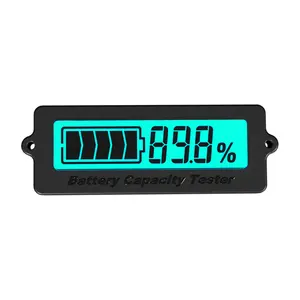



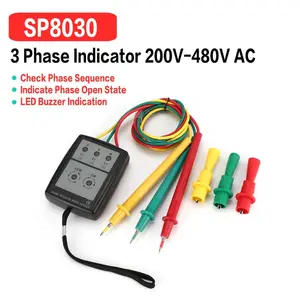

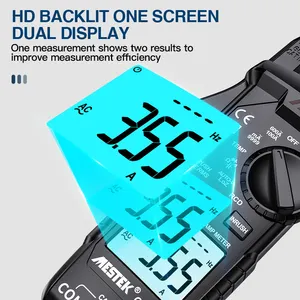







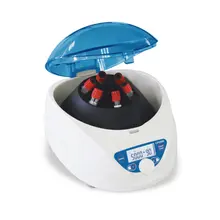

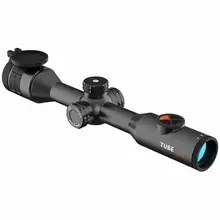














 浙公网安备 33010002000092号
浙公网安备 33010002000092号 浙B2-20120091-4
浙B2-20120091-4